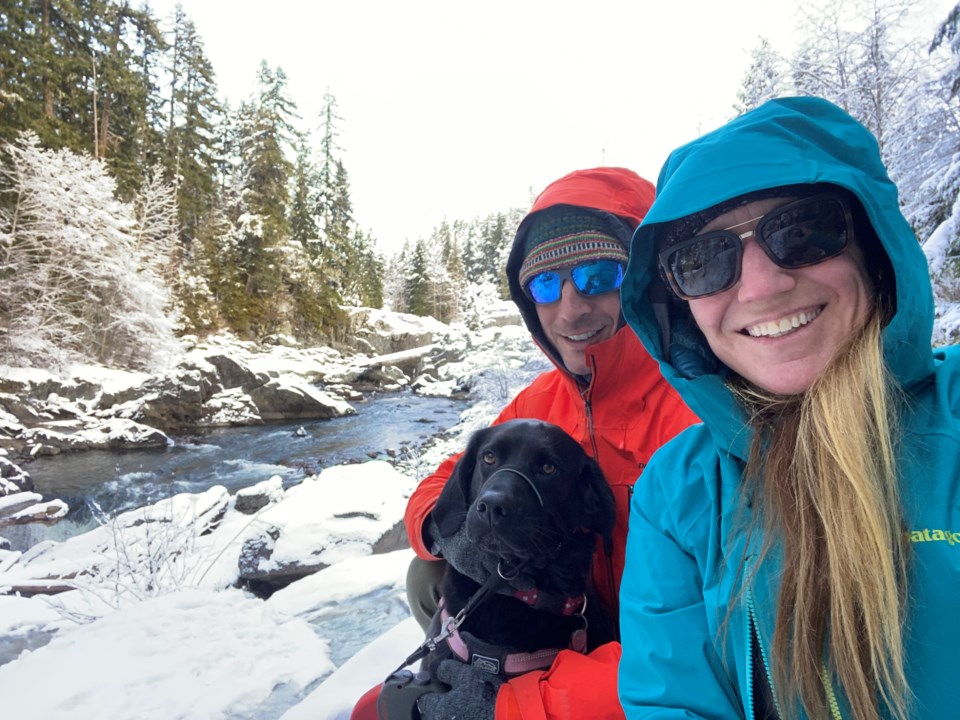As 2019 wound down, part-time Whistlerites Leah Nurmi and Chas Walters had plenty to look forward to. The couple had just married, after first meeting in Whistler years before, and in November, Walter, an American, made the big move from just outside of Seattle to B.C., with a work permit in process for his new job with a recreational cannabis company.
Then a little thing happened in March 2020 that, like so many other best-laid plans in the pandemic, threw a wrench in the husband-and-wife’s new life. The usual six- to eight-month permit processing time ballooned into nearly two years, Canada’s already slow-going immigration pipeline plugged with a backlog of applications. That was exacerbated further by a rush of refugee claimants in the aftermath of the United States’ hasty troop withdrawal from Afghanistan and that government’s subsequent collapse.
“I knew there was going to be some downtime regardless of that six- to eight-month wait, but I wasn’t prepared, nor was my wife, for what unfolded,” Walters said.
With immigration staff already stretched thin by COVID-19, the 40-year-old said his application was sent to a consulate office in China because it had the most staff available for processing. Then, crucial parts of his application were lost, only adding to the delays.
“I’ve had to re-submit my finger prints, background checks, and some parts of my life history because they lost multiple parts of my application due to the disorganization they are blaming on COVID,” Walters said. “The thing is, too: they make a mistake doing this and your application gets kicked to the back of the line.”
Adding to the couple’s worries was the fact Nurmi, a nurse practitioner, was surrounded by COVID patients on a daily basis, and because her husband didn’t have a job or the health coverage that goes with it, she lived in constant fear she would pass the virus on to him.
“I worried every single day, especially in the beginning,” she recalled. “Then there’s just the added stress of the financial implications if that happened, or even the hoops you have to jump through just to have him covered. You wouldn’t just walk in, hand over your care card and there you go.”
Without residency status or heath coverage, Walters was stuck in a kind of limbo. He contemplated returning to the U.S., but, with the border closed at the time, wasn’t sure he’d be allowed back into Canada.
“He moved up … just after we got married, and having to redo that long distance would have been a challenge,” Nurmi said. “Also, having to do that long distance knowing you couldn’t freely cross the border, that part would have been really awful.”
Then there was the financial stress that came from not working, Nurmi being the sole breadwinner for nearly two years. The couple dipped into their savings and were fortunate enough to have family lend them some money as well.
“After we burned through all my savings, we started to go into debt. And it was not like I could get a CERB cheque either while everyone else around me was getting $2,000-a-month cheques,” said Walters. “We would pay our bills and then see how much money we had left over for food. We made it by, but we wouldn’t have been able to do it without family.”
For Nurmi, it was another layer of uncertainty on top of the stresses she was already facing as a health-care worker in a global pandemic, navigating ever-changing public health orders and pockets of dissent from anti-vaxxers protesting outside of Vancouver hospitals.
“It’s been a rollercoaster. When you work in emergency and in health-care, you’re faced with all kinds of stressors,” she said. “There’s a level of constant change you have as an emerg provider, or anybody who works in health-care, but that constant change is exhausting.”
Hindsight being 20/20, Nurmi said it’s not a process she nor her husband want to go through again.
“Immigrating in a pandemic? Wouldn’t recommend it,” she added.




